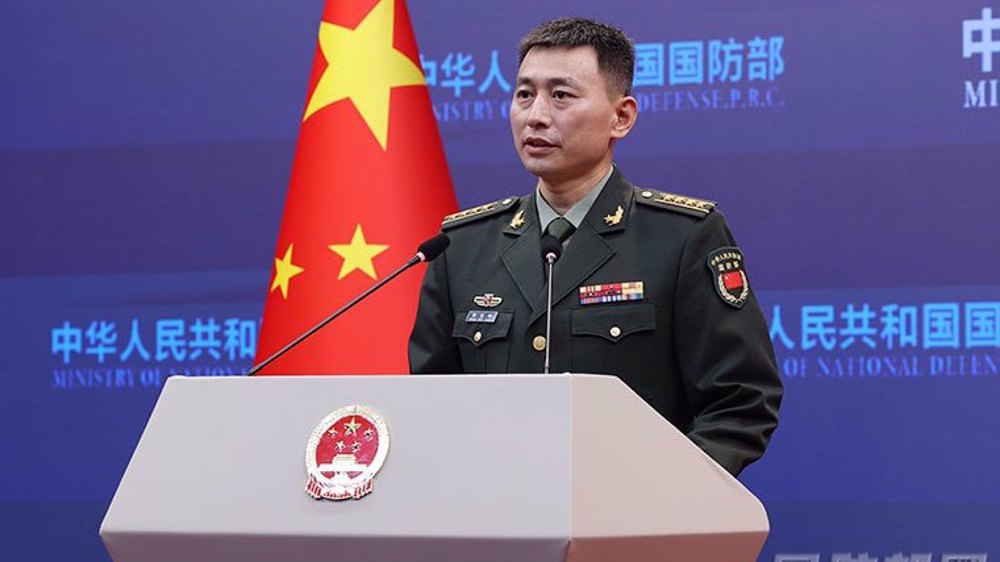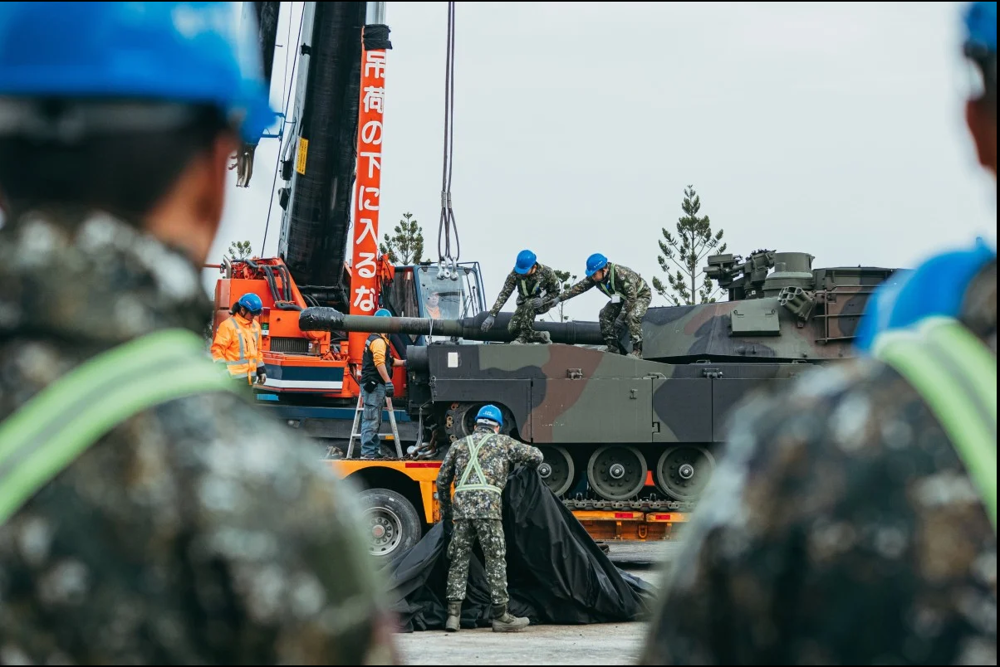China warns Taiwan president over 'very dangerous' remarks
China has warned Taiwan President Tsai Ing-wen, saying her remarks about the death of a Nobel Peace laureate were "very dangerous" for cross-strait relations.
Beijing's reaction on Friday came a day after Tsai said the self-ruled island hoped China could promote political reform after Nobel Peace laureate Liu Xiaobo died of cancer.
Ma Xiaoguang, spokesman for China's Taiwan Affairs Office, accused Tsai of aggravating cross-strait tensions, saying her remarks were an example of "repeated arbitrary attacks".
Such "reckless" comments are "very dangerous" for cross-strait relations, the official Xinhua news agency quoted the spokesman as saying.
Beijing also lodged official protests with the US, France, Germany and the UN human rights office over their "irresponsible remarks" regarding Liu Xiaobo.
The state-controlled Global Times newspaper said in an English-language editorial that "the West has bestowed upon Liu a halo, which will not linger".
The US and the EU paid tribute to Liu Xiaobo, while Germany voiced regret that Beijing ignored its offer to host him, with French President Emmanuel Macron describing him a "freedom fighter".
Britain accused China of preventing Liu from travelling overseas for treatment. The UN human rights commissioner, Zeid Ra'ad Al Hussein, said Liu "was jailed for standing up for his beliefs".
China's Foreign Ministry spokesman Geng Shuang said Liu's Nobel status was "a blasphemy of the peace prize".
"Conferring the prize to such a person goes against the purposes of this award," he said.
Liu lost his battle with liver cancer on Thursday at age 61, more than a month after he was transferred from prison to a hospital in the northeastern city of Shenyang.
He was was sentenced to 11 years in prison in 2008 for "subversion" over his role in the 1989 Tiananmen Square protests.
A day after Liu's death, attention turned to his widow who is also in prison. The Foreign Ministry spokesman said he would "not make prejudgments" about whether Liu Xia could go abroad.

Physical fight at Taiwan parliament
Taiwanese lawmakers on Friday engaged in a physical fight at the parliament for a second consecutive day over a controversial government-proposed infrastructure project.
Legislators from the president’s ruling Democratic Progressive Party (DPP) and critics from the opposition Kuomintang Party were wielding chairs above their heads and throwing water balloons as they brawled over the major project.
On Thursday, rival legislators had grabbed each other’s throats in angry scuffles during a review of the budget for the major project, which included light rail lines, flood control measures, and green energy facilities proposed by President Tsai.
Critics from Kuomintang have questioned whether the multi-billion-dollar projects are worthwhile. They say the projects favor cities and counties faithful to the ruling DPP and have been devised to secure support for the party ahead of regional elections next year.
Premier Lin Chuan was prevented from delivering his report on the project budget on Thursday after a water balloon was thrown at him. The session was halted as a result.
Lin failed again on Friday to take the podium to deliver the report. Opposition lawmakers raised large padded office chairs above their heads, surrounding the podium and tussling with rival legislators to prevent Lin from presenting the report as more water balloons were thrown.
The parliament session on Friday was halted, as well.
Outside the building, the Kuomintang’s acting chairman, Lin Jung-tzer, led a group of legislators and protesters, chanting “Send back the budget, defend Taiwan!”
Meanwhile, President Tsai has seen her popularity plunge from 70 percent when she took office in May last year to under 40 percent due to a range of socioeconomic issues and policies, including her attempts to reform pensions.
Violent protests erupted outside the parliament in April when opponents of her pension reforms attacked politicians and scuffled with police, prompting the president to call for calm and restraint.
Parliament also plunged into chaos late last year over the president’s proposed holiday cuts. Back then, opposing lawmakers brawled in the chamber as labor activists set off smoke bombs outside in protest.
Russia downs over 40 Ukrainian drones as Putin vows 'destruction' on Kiev
VIDEO | Yemen: A bone in Israeli neck
D-8’s role in Iran’s economy after Cairo summit
China slams US as ‘war-addicted’ threat to global security
China ‘firmly opposes’ US military aid to Taiwan
VIDEO | Press TV's News Headlines
President Yoon Suk Yeol to be removed from office
At least 19 Gazans killed by Israeli airstrikes since dawn: Medics













 This makes it easy to access the Press TV website
This makes it easy to access the Press TV website